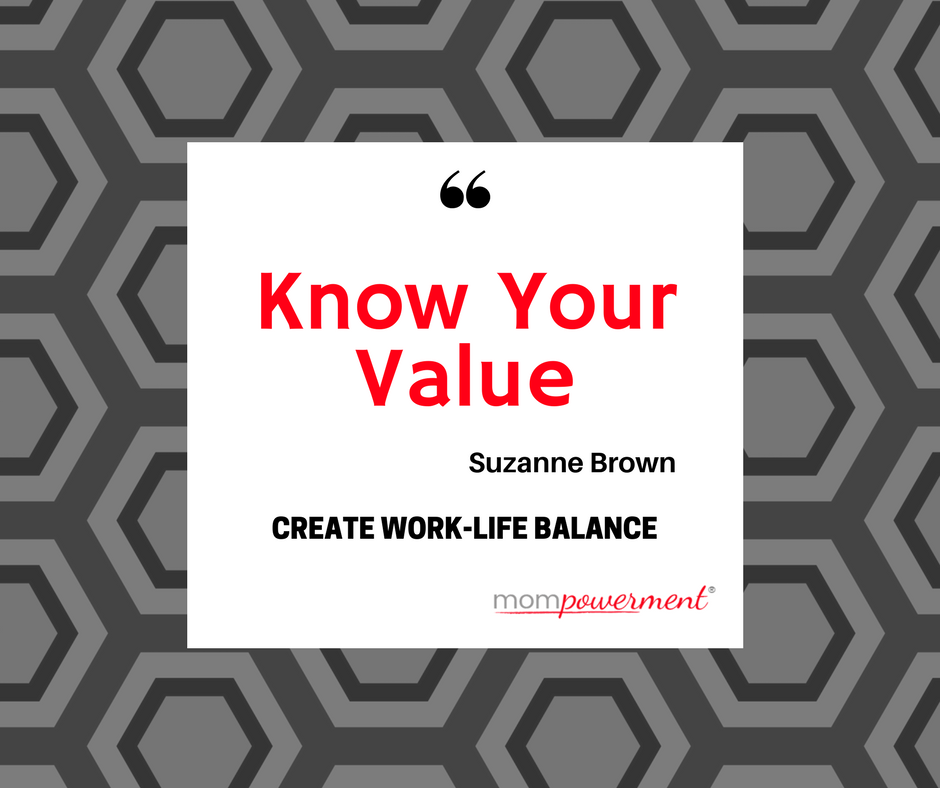 Before making my own business my main career focus, I had a side hustle for about 7 years. The reason I had a side hustle was that I knew I wasn’t getting paid enough. I negotiated with my employer and maxed out the salary limits.
Before making my own business my main career focus, I had a side hustle for about 7 years. The reason I had a side hustle was that I knew I wasn’t getting paid enough. I negotiated with my employer and maxed out the salary limits.
I knew what I should have been getting paid because you have all kinds of statistics as a graduating MBA. I also knew that I wanted work-life balance and was willing to be creative to achieve the work-life balance I was looking for.
We agreed that I could make up what I thought I should be making with consulting. They would give me more vacation days (I always negotiated vacation to explore new places, but that’s another topic all together) and they would give me flexibility and not balk at lunch meetings or travel days here and there to see clients. We agreed that my clients couldn’t compete with company business. It all seemed to work out and I had two different employers agree to this arrangement.
I mention this approach because it was based on me knowing my value. I knew what I brought to the table and I had an idea about what my skills and knowledge were worth. The two positions I had between graduating from business school and focusing 100% on being an entrepreneur checked a lot of the boxes I had for work-life balance and career. They didn’t fill the financial box, though, so I figured out how to make my situation acceptable to me.
Do you Know your Value?
When you consider your business or when you consider your role as an employee, do you think about your value? Do you know what your skills are worth on the open market? Do you do any research after you start a job, when you’ve been at a company few years? I know we do this research when we’re starting jobs or starting with a new client, but what about over time? What happens if your skills become more in-demand? Do you make adjustments?
Don’t assume a client will come to you and say your rates are too low or that your manager will give you a raise because of your great work product. We must advocate for ourselves to increase rates and salary. That means we need to do research from time to time. Maybe do this research and analysis once a year. You also want to keep track of the accolades you’re getting. Hint: Keep a file where you can grab screen shots of emails from clients, senior leadership, your manager, etc. where people share how amazing you are. You can refer to this when you’re asking for your rate increase or salary bump.
Your Unique Selling Proposition
Some might read this and say, “I don’t know my value and I’m not sure where to begin.”
My first question to you is how are you unique in comparison to your competition? Do you have a unique set of skills? Do you have 20+ years of experience? Do you have a fresh perspective that you can back up with results?
Take time to uncover and discover what makes you unique. Embrace that uniqueness. Your story, your path, your perspective will have something unique to them. And that uniqueness will help you understand your value.
Make sure you can articulate that uniqueness. Include it in your story on your website and social media. Include it in your self-evaluation during reviews. As an employee, try to work on projects that highlight those skills so that you’re recognized and rewarded by your manager and upper management. Volunteer for projects that allow your unique skills to shine, even if they aren’t usually part of your role. As an entrepreneur, work on projects that include these unique skills for your clients.
Value Pricing for Entrepreneurs
A lot of people look at pricing as what will it cost me to do this, which includes time + hard costs (e.g., number of hours to complete a project plus buying a report or supplies plus covering some level of general tools). Other people price their goods and services in line with competitors, especially if those prices are listed in an easy to find location on a website or pricing sheet.
These two often used pricing techniques are pretty straight forward, but they don’t offer a complete picture. For starters, they don’t necessarily take into account what you want or need to make.
It also definitely doesn’t consider what your product or service is worth to a potential client. Whether you’re a small business or large corporation, does your client need this service because it’s critical to his or her business? Shouldn’t that have some influence on pricing? If it can save a potential client hours or work and effort, couldn’t it have higher value? If you’re more efficient with a process, should you be penalized for working more efficiently or should you be paid for your value and experience and not simply time plus costs? If your client gets access to someone like you with more experience, shouldn’t it be worth more? As you look at these kinds of questions as they relate to pricing, your value is influencing your pricing strategy.
Understanding your Value can help with Boundaries
As you figure out your value and what your time and effort is really worth, it might help you with your boundaries as well. You might have a better idea of what to say “no” to in order to say “yes” to other things. It might also help you prioritize work as well. Don’t we all want to work on things where we’re more valued? It could help you figure out what things to delegate as well.
Knowing Your Value and Work-life Balance
You might be wondering why someone who writes and talks about work-life balance is writing about value. Here’s the thing. Knowing your value and work-life balance go hand-in-hand. When it comes to your career approach, understanding your value can help you be more prepared for the financial part of the discussion on and negotiation for more flexibility or work-life balance. Many of the moms I interviewed talked about understanding their value and knowing what they brought to their team that was unique. Knowing what you bring to a team can help you understand your negotiating power when asking for more work-life balance like a professional part-time role or working from home.
It will help you understand what you can ask for salary-wise, even with a reduction in hours. Don’t assume that if you ask for a reduction of hours of 25% that should be an automatic reduction of salary of 25%. If you’re doing the same level of work, should you reduce your salary at all? Even if there is a reduction in salary, it’s likely not to the same level as the reduction in hours. For example, maybe it’s that you aim for no reduction in salary or a reduction of at most 10%. You might even use fewer hours as a way to ask for a raise that is not monetary. What if you asked for a 35-hour work week instead of a pay increase? Knowing your value can help influence your salary negotiation that relate to these changes.
Hopefully, you can use these thoughts to help you figure out how knowing your value and work-life balance will go together for you. If you’ve already done some of this analysis, how did you better understand and uncover your value? What types of questions did you ask yourself? Did you do it alone or did you have a business coach help you figure it out? Has it helped in your business? I’d love to hear how this whole process to understanding your value has gone.
If you want to read more about the professional part-time role or attaining more work-life balance in general, Mompowerment: Insights from Successful Professional Part-time Working Moms Who Balance Career and Family can help. I specifically talk about how to understand your needs related to work-life balance in a few chapters and share how other professional part-time working moms have negotiated and maneuvered on their own work-life balance journey. Download two free chapters at www.mompowerment.com/introchapter1.



